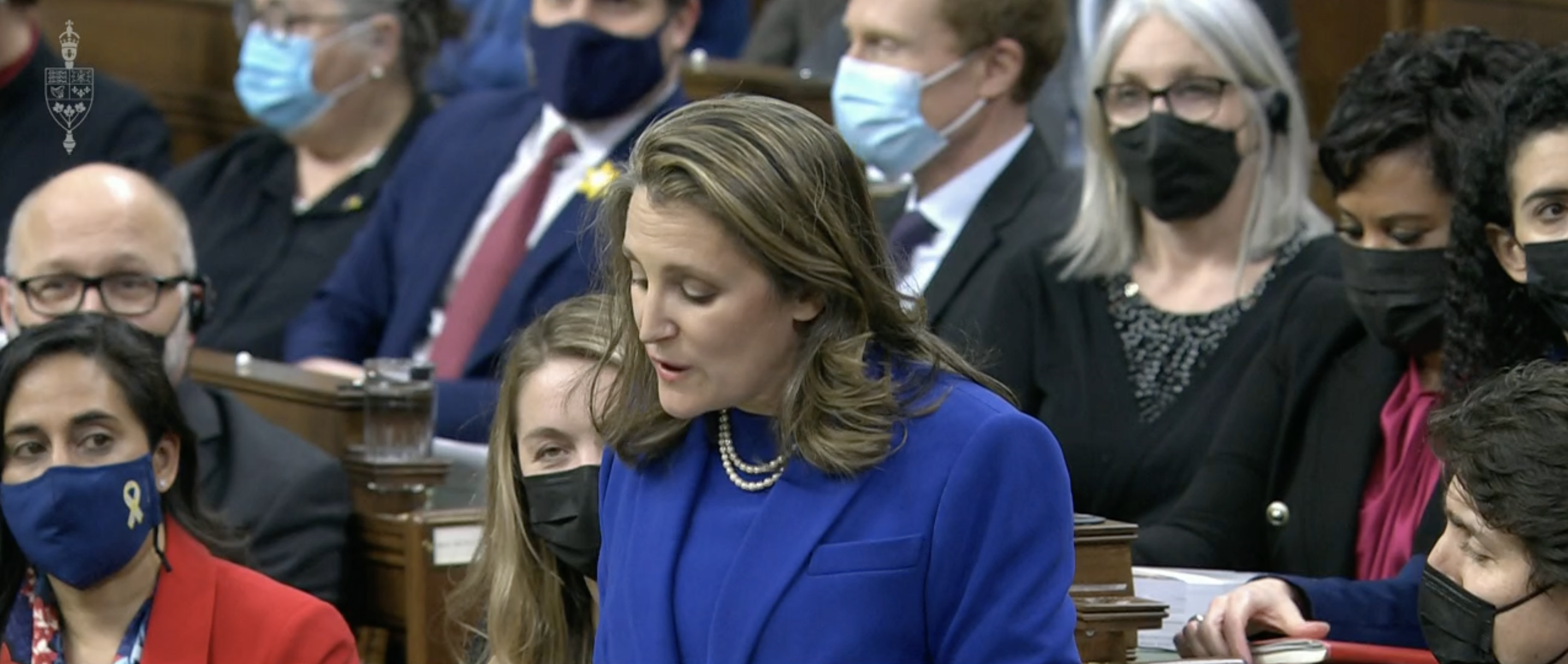
Budget 2023 released, federal government announces investments in clean technology manufacturing
by CM Staff
The Investment Tax Credit for Clean Technology Manufacturing will apply to property that is acquired and becomes available for use on or after January 1, 2024.

Minister of Finance and Deputy Prime Minister Chrystia Freeland, delivering speech and federal budget.
On Mar. 29, the federal government announces its 2023 budget, with many industries hoping the government would address inflation, rising food prices and an ongoing labour shortage.
Beyond investments announced in clean technology, such as the new Clean Technology Investment Tax Credit, which is a 30 per cent refundable credit that would be available to businesses investing in eligible capital property that is acquired and that becomes available for use on or after Budget day. The property must not have been used for any purpose prior to acquisition.
A large investment tax credit was announced for clean technology manufacturing.
Investment Tax Credit for Clean Technology Manufacturing
Budget 2023 proposes a new refundable investment tax credit for clean technology manufacturing and processing, and critical mineral extraction and processing. The proposed credit is equal to 30 per cent of the capital cost of eligible property associated with eligible activities, which are defined as follows:
- Eligible property – machinery and equipment, including certain industrial vehicles, used in manufacturing, processing, or critical mineral extraction, as well as related control systems. If the eligible property is subject to a change in use or sold within a certain period of time, a portion of the tax credit will be subject to a recovery mechanism.
- Eligible activities – activities related to clean technology manufacturing and processing, including:
- Manufacturing of certain renewable energy equipment (solar, wind, water, or geothermal).
- Manufacturing of nuclear energy equipment.
- Processing or recycling of nuclear fuels and heavy water.
- Manufacturing of nuclear fuel rods.
- Manufacturing of electrical energy storage equipment used to provide grid-scale storage or other ancillary services.
- Manufacturing of equipment for air- and ground-source heat pump systems.
- Manufacturing of zero-emission vehicles, including conversions of on-road vehicles.
- Manufacturing of batteries, fuel cells, recharging systems, and hydrogen refuelling stations for zero-emission vehicles.
- Manufacturing of equipment used to produce hydrogen from electrolysis.
- Manufacturing or processing of upstream components, sub-assemblies, and materials provided that the output would be purpose-built or designed exclusively to be integral to other eligible clean technology manufacturing and processing activities, such as anode and cathode materials used for electric vehicle batteries.
- The extraction and certain processing activities related to six critical minerals essential for clean technology supply chains: lithium, cobalt, nickel, graphite, copper, and rare earth elements, including activities both before and after the prime metal stage or its equivalent.
The Investment Tax Credit for Clean Technology Manufacturing will apply to property that is acquired and becomes available for use on or after January 1, 2024. The credit is gradually phased out starting with property that becomes available for use in 2032, when the credit is reduced to 20 per cent, followed by a 2033 reduction to 10 per cent and a 2034 reduction to five per cent with a subsequent full phase-out after 2034.